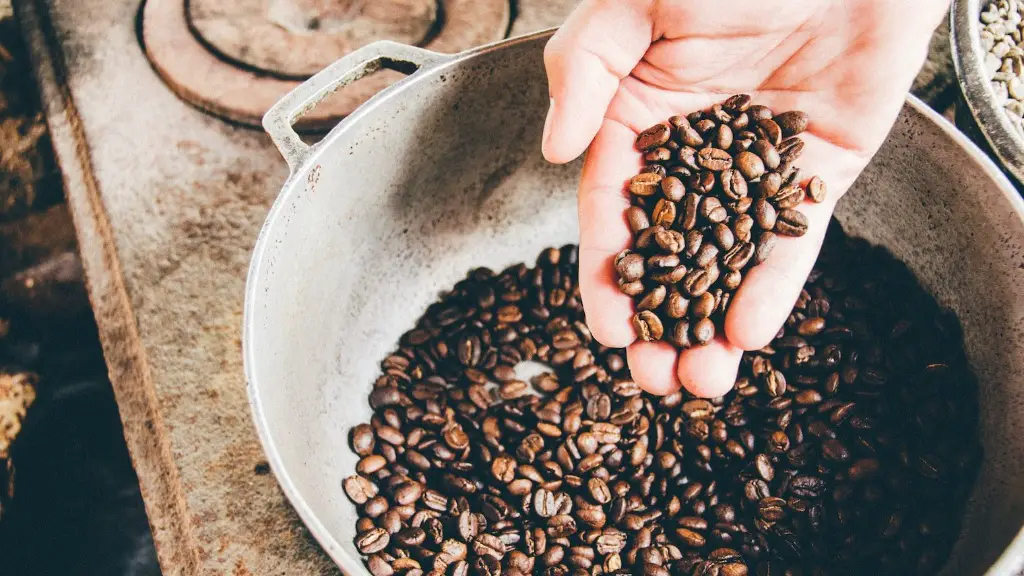The Science Behind Coffee Consumption at a Young Age
Coffee is one of the most popular beverages around the world, with 80% of adults in the US consuming caffeine daily. But when is the “right” age to start drinking this beloved caffeinated drink? This question has long been debated and remains controversial.
There are several health benefits of drinking coffee, including improved cognitive performance and alertness, reduced risk of type 2 diabetes, and improved metabolism. Coffee is also high in several essential vitamins and minerals, and is considered a good source of antioxidants. However, some studies have shown that regular coffee consumption can also be linked to negative health effects, such as heart palpitations, headaches, and nausea.
So when should kids start drinking coffee? According to the American Academy of Pediatrics (AAP), there is no one-size-fits-all answer. The AAP recommends that young people should not start drinking caffeine before the age of 12-18, as even a few ounces of coffee can be detrimental to their growing bodies. In addition, the AAP suggests that people of all ages should limit their caffeine intake to no more than 400mg per day.
In fact, there is no consensus on an exact “right” age for starting coffee consumption. While some experts argue that caffeine is not recommended for those younger than 18, due to its stimulant effects, others suggest that the right age depends on the individual. Some even argue that children as young as 5 years old can benefit from caffeine by enhancing their alertness and attention span.
However, it is important to note that when introducing coffee to young people, they should be provided with decaf varieties, which have much lower levels of caffeine than regular coffee. Decaf coffee can still provide the same flavor, but with fewer of the stimulant effects. It is also important to remember that coffee is not an essential part of a healthy diet for children and should be consumed in moderation.
Healthy Alternatives To Coffee
If you decide that your child is too young to start drinking coffee, there are plenty of healthy alternatives to give them a boost of energy. Good sources of natural energy include fresh fruits, nuts, grains, and dairy products like milk or yogurt. Fresh fruits and vegetables are also excellent sources of antioxidants and vitamins, and can be easily incorporated into the diet.
It is also important to establish a good bedtime routine for your child and make sure that they are getting adequate amounts of sleep. Getting enough sleep is one of the most important factors in staying energized and energized. Additionally, regular exercise can help increase energy levels and improve focus.
In some cases, caffeine-containing beverages may be necessary for sports or other physical activities that require quick bursts of energy. Many sports drinks are formulated with a small amount of caffeine to improve focus, alertness, and reaction time. In these cases, the amount of caffeine should be discussed with your doctor and closely monitored.
Factors To Consider When Deciding When to Drink Coffee
When deciding whether your child is ready to try coffee, there are several factors to consider. First, you should assess your child’s overall health and wellbeing. If they have any pre-existing medical conditions, speak with your doctor before introducing caffeine. Additionally, it is important to look at the amount of caffeine in the beverage and consider any added sugars. Caffeine and added sugars can have negative effects on young people, especially when consumed in excess.
You should also consider your child’s lifestyle. Are they active enough? What type and how much exercise do they get? If a child is physically active, consuming a small amount of caffeine may benefit them, as caffeine can increase energy and alertness during physical activity. However, it is important to be mindful and not consume too much caffeine in a day.
Finally, consider your child’s emotional health. If your child is dealing with anxiety or depression, drinking caffeine can make them feel worse. Stimulants tend to increase anxiety and irritability, so you should be aware of how your child is feeling before introducing coffee.
The Impact of Caffeine on Kids
Caffeine is a powerful stimulant, which can have both positive and negative impacts on kids. On the one hand, it can improve alertness, reaction time, and focus. On the other hand, excess caffeine consumption can lead to headaches, irritability, and restlessness. It is important to remember that caffeine should be used in moderation and that there is no one-size-fits-all answer when considering when to start drinking coffee.
In addition, it is important to educate kids about the effects of caffeine, as excessive consumption can be risky for their health. For instance, consuming too much caffeine can increase heart rate, blood pressure, and anxiety, and can even cause insomnia. Kids should be aware that caffeine is a stimulant and should be treated accordingly.
Overall, it is important to consider a variety of factors when deciding when your child is ready to drink coffee. While coffee is a delicious and popular beverage, it should be used in moderation, especially for young people.
The Drawbacks Of Drinking Too Much Coffee
In addition to being considered a stimulant, coffee can also be addictive and habit-forming. The stimulant effects of caffeine can lead to a dependence on coffee, which can be hard to break. If your child begins to rely on coffee to stay alert and focused, they may find that they need more and more caffeine to achieve the same impact, leading to an unhealthy cycle.
Moreover, excessive caffeine consumption can also have an adverse effect on energy levels in the long run. Over time, drinking too much coffee can lead to adrenal fatigue, a condition in which the body produces too much of the hormone adrenaline, leading to fatigue and exhaustion.
Finally, drinking coffee on an empty stomach can also cause negative effects, such as nausea and headaches. This is because when caffeine is consumed without food, it is quickly absorbed into the bloodstream and can cause imbalances. Therefore, it’s important to make sure that kids never drink coffee on an empty stomach and always accompany it with a healthy snack.
Alternatives To Coffee At Young Age
If your child is too young to start drinking coffee, there are plenty of other alternatives that can boost energy and focus without caffeine. Herbal teas are an excellent source of antioxidants and vitamins, and can provide the same flavor, but with far less stimulant effects. In addition, smoothies and juices made with fresh fruits and vegetables are packed with antioxidants and vitamins and are excellent energy boosters.
If your child requires more of an immediate energy boost, whole fruits and nuts are fast-acting and can provide a boost of energy and focus. Additionally, whole grain cereals, such as oats and quinoa, are excellent sources of fiber and can help sustain energy levels for longer periods.
Finally, regular exercise is an excellent way to increase alertness and focus, as it releases dopamine and serotonin, two “happy” hormones. Even a short workout can provide a boost of energy and improve focus. Additionally, making sure your child is getting enough sleep is also essential for overall health and energy levels.
Staying Informed Of The Pros And Cons Of Caffeine Consumption
When it comes to drinking coffee, it is important to stay informed of the pros and cons of caffeine consumption, especially for kids. Discussing the effects of coffee with your child can help them make informed decisions about when and how to consume it. Additionally, engaging with healthcare professionals to understand the potential risks of caffeine consumption can also be beneficial.
Finally, if your child decides to start drinking coffee, setting limits can help ensure that they do not overindulge. It is important to monitor the amount of coffee your child consumes and to make sure that it does not interfere with their sleep or overall wellbeing. Establishing proper coffee consumption habits early on can help ensure your child remains healthy for years to come.





